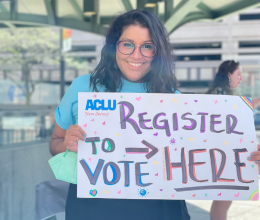
The spread of COVID-19, a novel strain of Coronavirus, is unprecedented. The Coronavirus pandemic touches every aspect of life, which means it touches all of our civil rights.
We at the ACLU of New Jersey are monitoring to make sure that government actions reflect public health and scientific evidence – not fear. And we’re monitoring to make sure that our rights – and in particular, the rights of the most vulnerable – remain intact.

